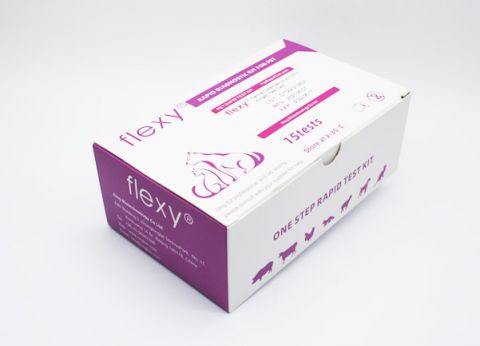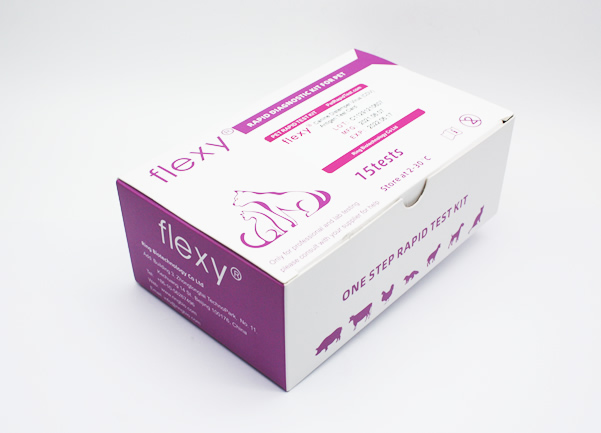
This Feline Infectious peritonitis virus (FIPV) Rapid Test Kit is based on an immunochromatographic assay to detect FIPV in feline plasma or serum.
Basic information of this test kit
Feline infectious peritonitis (FIP) is a viral disease of cats caused by certain strains of a virus called the feline coronavirus. Most strains of feline coronavirus are found in the gastrointestinal tract and do not cause significant disease. These are referred to as feline enteric coronavirus (FeCV). Cats infected with FeCV usually do not show any symptoms during the initial viral infection, but may occasionally experience brief bouts of diarrhea and/or mild upper respiratory signs from which they recover spontaneously. FeCV-infected cats usually mount an immune response through which antibodies against the virus are produced within 7-10 days of infection. In approximately 10 percent of cats infected with FeCV, one or more mutations of the virus can alter its biological behavior, resulting in white blood cells becoming infected with virus and spreading it throughout the cat’s body. When this occurs, the virus is referred to as the FIPV.
Key facts of the Feline Infectious peritonitis virus (FIPV) Rapid Test Kit
- Ready to use kits for pet owners and vet clinic
- No special instrument required
- Suitable for field test
- Result in 10min.
SPECIFICATION of Feline Infectious peritonitis virus (FIPV) Rapid Test Kit
| Product Code | C11491 |
| Unit Size | 15tests |
| Principle | Lateral flow rapid tests |
| Target Species | Fline |
| Target Samples | Serum, Blood |
| Incubation Time | 15min |
| Performance | This kit is 100% specific, and sensitivity is >99% |
| Standard Components: | This kit includes: - Rapid Test Card, 15pcs - Sample buffer, 15pcs - Swabs, 15pcs - Kit manual, 1set |
What are the clinical signs of FIP?
There are two major forms of FIP, an effusive, or “wet” form and a noneffusive, or “dry” form. Regardless of which form they ultimately progress to develop, cats infected with FIPV usually first develop nonspecific signs of disease such as loss of appetite, weight loss, depression, and fever.
How is FIP treated?
Until recently, FIP was considered an incurable disease. If you are considering treatment with GS-441524, it is important to discuss the risks, benefits, and evolving access and regulatory issues with your veterinarian. In some cases, supportive care, including fluid therapy, fluid drainage, and blood transfusions, is also needed
Extended reading
-
Feline Infectious Peritonitis,Cornell Feline Health Center




